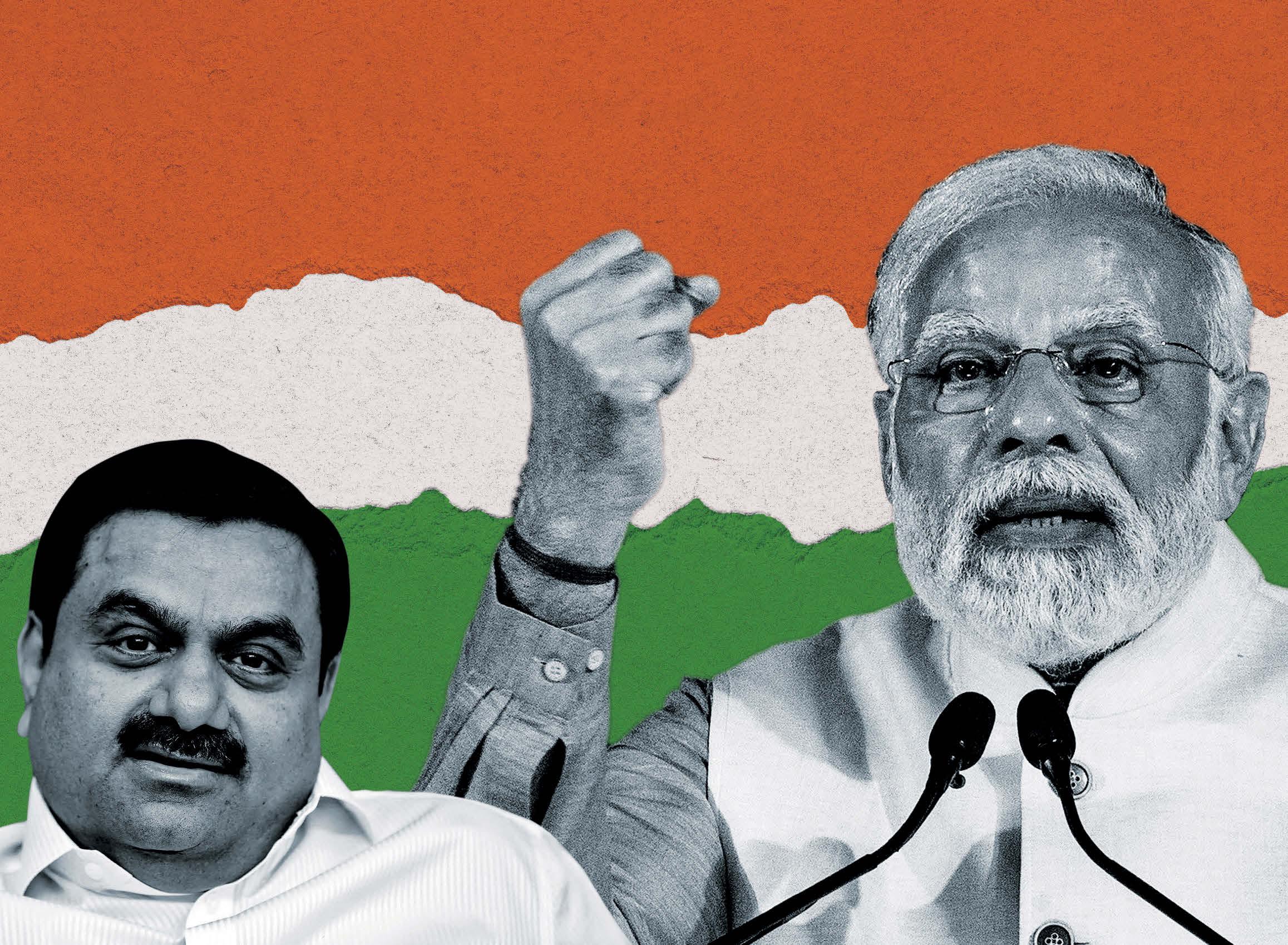
Or so our government would have us believe. Why? Because former colonialists and neo-imperialists cannot tolerate our prosperity and good fortune. The attack, we are told, is aimed at the political and economic foundations of our young nation.
The covert operatives are the BBC, which in January broadcast a two-part documentary called India: The Modi Question, and a small US firm called Hindenburg Research, owned by 38 -year-old Nathan Anderson, which specialises in what is known as activist short-selling.
The BBC-Hindenburg moment has been portrayed by the Indian media as nothing short of an attack on India’s twin towers – Narendra Modi, the prime minister, and India’s biggest industrialist, Gautam Adani, who was, until recently, the world’s third richest man. The charges laid against them aren’t subtle. The BBC film implicates Modi in the abetment of mass murder. The Hindenburg report, published on 24 January, accuses Adani of pulling “the largest con in corporate history” (an allegation that the Adani Group strongly denies).
Modi and Adani have known each other for decades. Things began to look up for them after the 2002 anti-Muslim pogrom, which raged through Gujarat after Muslims were held responsible for the burning of a railway coach in which 59 Hindu pilgrims were burned alive. Modi had been appointed chief minister of the state only a few months before the massacre.
This story is from the February 24, 2023 edition of The Guardian Weekly.
Start your 7-day Magzter GOLD free trial to access thousands of curated premium stories, and 9,000+ magazines and newspapers.
Already a subscriber ? Sign In
This story is from the February 24, 2023 edition of The Guardian Weekly.
Start your 7-day Magzter GOLD free trial to access thousands of curated premium stories, and 9,000+ magazines and newspapers.
Already a subscriber? Sign In

The Saudi football World Cup is an act of violence and disdain
Well, that's that then. In the event there were only two notes of jeopardy around Fifa's extraordinary virtual congress last week to announce the winning mono-bids, the vote without a vote, for the right to host the 2030 and 2034 football World Cups.

AI has made the move into video and it's worryingly plausible
I recently had the opportunity to see a demo of Sora, OpenAI's video generation tool, which was released in the US last Monday, and it was so impressive it made me worried for the future.

With tyrant Assad ousted, Syrians deserve support and hope
Last week, time collapsed. Bashar al-Assad's fall recalled scenes across the region from the start of the Arab spring almost 14 years ago. Suddenly history felt vivid, its memories sharpened. In fact it no longer felt like history.

TV
The Guardian Weekly team reveals our small-screen picks of the year, from the underground vaults of post-apocalyptic Fallout to the mile-high escapism of Rivals

Albums
Murky love stories, nostalgic pop and an in-your-face masterpiece captured our critics' ears in 2024

Film
Visual language, sound, light and rhythm are to the fore in the best movies of the year

Hidden delights Our 24 travel finds of 2024
Guardian travel writers share their discoveries of the year, from Læsø to Lazio

'It's really a disaster' The fight to save lives as gang war consumes capital
Dr James Gana stepped out on to the balcony of his hospital overlooking a city under siege. \"There's a sensation of 'What's next?'. Desperation is definitely present,\" the Médecins Sans Frontières (MSF) medic said, as he stared down at one of scores of camps for displaced Haitians in their country's violence-plagued capital.

Trailblazers The inspiring people we met around the world this year
From an exuberant mountaineer to a woman defiantly facing the guns of war, here are some of the brave individuals who gave us hope in a tumultuous 2024

Votes of confidence
From India to Venezuela and Senegal to the US, more people voted this year than ever before, with over 80 elections across the world. With rising authoritarianism and citizen-led resistance revealing its vulnerabilities and resilience in the face of unprecedented challenges, has democracy reached its breaking or turning point?